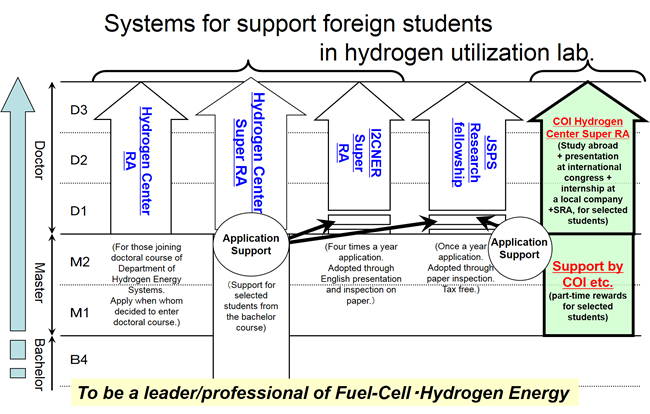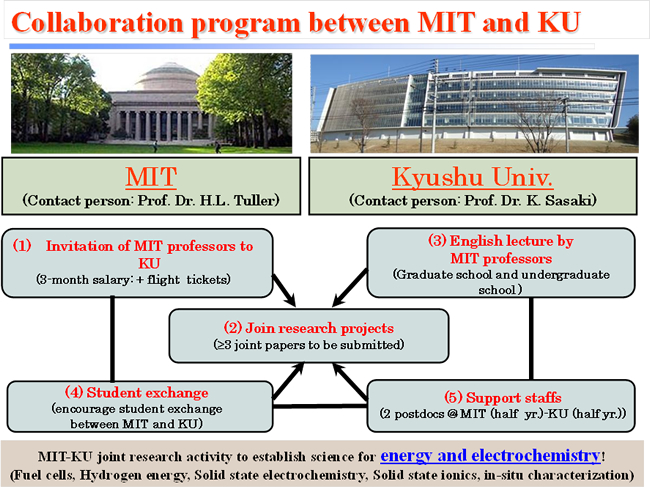Support
Hydrogen Utilization Process Laboratory: Support
The Japanese government is clearly committed to hydrogen energy, as outlined in the recently revised Hydrogen Fuel Cell Strategy Roadmap. Fuel cells are defined as a key technology in the Energy Fundamentals Project strategy. Japan is leading the world in fuel cell research. All three major vehicle manufacturers in Japan are pushing joint development of fuel cells with overseas production companies. The globalization of research and development fields is rapidly rising.
However, the ratio of Japanese university students who study overseas still remains low (~1%). This fact indicates younger generations of Japanese students are being left behind in terms of internationalization and the global research environment. Thus, the development of human resources is becoming an urgent issue. Due to this situation, our collaboration with Massachusetts Institute of Technology (MIT) is highly regarded at the university and by the government.
In FY2013, Kyushu University was chosen to host a Center of Innovation (COI). Our laboratory has become the only laboratory at Kyushu University to be involved simultaneously in the World Premier International Research Center Initiative (WPI), the Next-Generation Fuel Cell Research Center (NEXT-FC), and is one of the biggest hydrogen-based research centers in the world. Fully employing these organizations, systems and networks, we are reinforcing support for postgraduate students, as shown below.
(1) Study abroad during your doctoral course (e.g. a few months)
Study abroad at one of the world's top three institutes for science and engineering; MIT (United States), Imperial College (United Kingdom), or ETH (Switzerland). Airfare and living expenses can be provided. Engage in international collaborative research in our laboratories in the NEXT-FC, etc.)
(2) Doctoral student internships
It is possible to arrange corporate internships with companies involved in the NEXT-FC and Kyushu University COI participation.
(3) Support to present at an international conferences once a year,
and publish research results in associated journals.
For examples, travel to conferences in Switzerland Luzerne (European Fuel Cell Forum) or the United States (Electrochemical Society (ECS), etc).
In this case, research results are required.
(4) Doctoral student support by the Super Research Assistant program in the engineering school (3 years).
Super RA support program offers more support than a normal RA position, for selected students.
We also support initiatives for early course completion.
(5) Support for Master Students(Part-time Reward)
Masters students will be additionally supported once they decide to enter the doctoral course.
Obtaining a Ph.D certification is to be recognized as a full-fledged researcher and engineer all over the world, opening the door to traveling and working anywhere overseas. We would like to encourage our students to be experts in hydrogen energy and fuel cells at the doctoral level, and become leaders through this support program.












